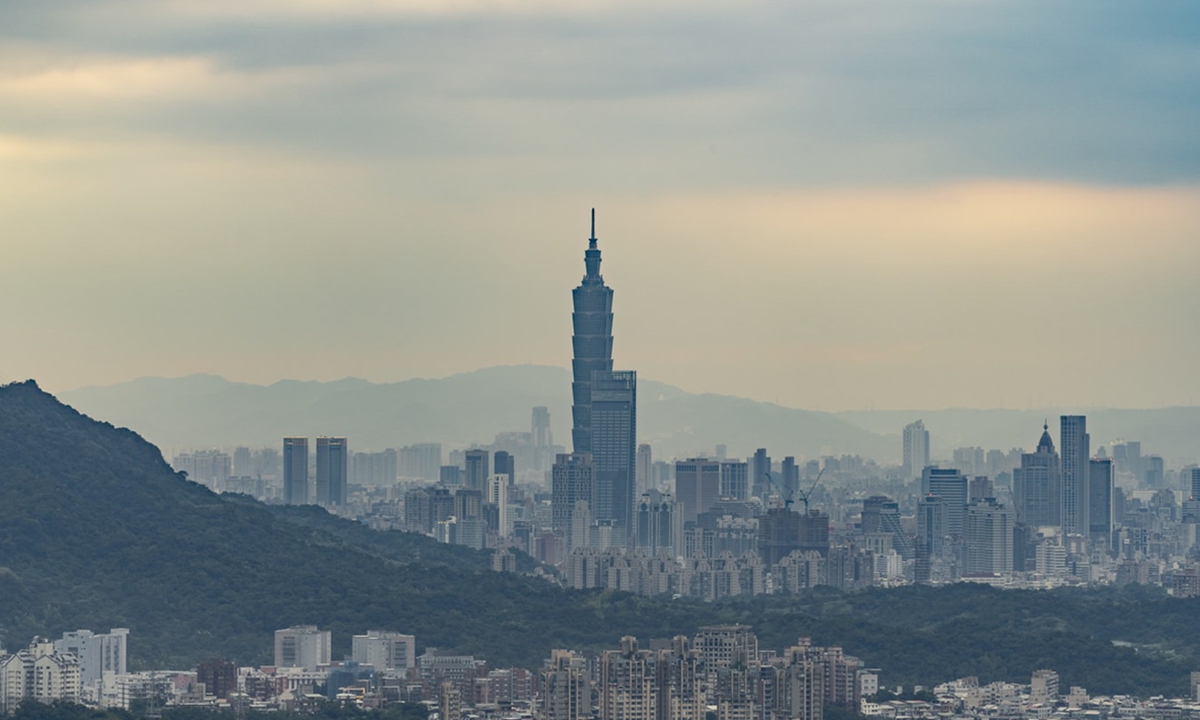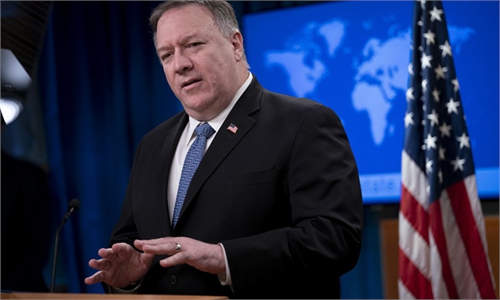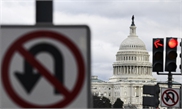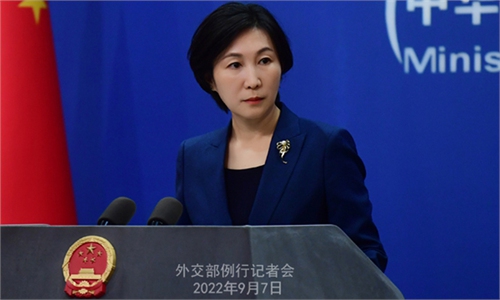Tsai’s speech slammed as another political
farce, indulging in secession 'pipe dream'

A view of the Taipei city, Taiwan island Photo: Unsplash
Chinese mainland officials and experts blasted Taiwan's secessionist Democratic Progressive Party (DPP) authorities for twisting the nature of cross-Straits relations, hyping "mainland threat" and colluding with external forces to seek secession,whichthey believed is daydreaming and will be doomed to fail, in response to a provocative so-called "Double Ten" speech made by Taiwan regional leader Tsai Ing-wen on Monday.
The "Double Ten Day" on October 10, a public holiday in the island of Taiwan originally meant to commemorate the 1911 Revolution, which began on October 10, 1911, has been seen by observers as yet another farce staged by the secessionist Democratic Progressive Party (DPP) and its leader Tsai that serves to promote their desinicization agenda and daydream of a "two-state theory."
In Monday's speech, Tsai stressed determination in self-defense, and also claimed "armed confrontation is absolutely not an option for our two sides." However, when it comes to actual military hardware, Tsai said the island is increasing mass production of precision missiles and high-performance naval vessels, and working to acquire small, highly mobile weapons that will ensure Taiwan is fully prepared to respond to "external military threats."
The root cause of the current tension in the Taiwan Straits lies in the fact that the DPP authorities stubbornly adhere to the secessionists' position and collude with external forces to continuously seek independence, which seriously undermines the important foundation of the peaceful development of cross-Straits relations, Chinese Foreign Ministry spokesperson Mao Ning said at a press briefing Monday.
"Taiwan is an inalienable part of China's territory… We are willing to create broad space for peaceful reunification, but we will never leave any room for Taiwan secessionist activities," Mao said.
Ma Xiaoguang, spokesperson of the Taiwan Affairs Office under the State Council, said that Tsai's speech continues to promote the "two-state theory," play up the "threat" from the mainland, shirk responsibility for sabotaging cross-Straits relations and reinforce the seeking of secession by armed forces and by relying on external forces.
The DPP authorities are fabricating a false narrative of "democracy and freedom," which cannot cover up their actions and nature of splitting the country and breaching the fact that both sides of the Taiwan Straits belong to one China, Ma said.
Wang Yingjin, director of the Center for Cross-Straits Relations Studies at the Renmin University of China, told the Global Times on Monday that compared to Tsai's "Double Ten" speech in 2021, which directly mentioned dangerous secessionism ideas such as "the two sides of the Straits do not belong to each other," Tsai did not use new provocative language against the mainland, but her pro-secession line remains unchanged.
Despite Tsai expressing willingness to have a "rational and equal" dialogue with the mainland to maintain peace and stability in the Taiwan Straits in her latest speech, mainland analysts noticed the trick used by the DPP authorities of publicly using the secessionist term "Taiwan national day" written in English to mark the "Double Ten Day."
A few days before Tsai's speech, Taiwan's former regional leader Ma Ying-jeou called on Tsai not to use "Taiwan National Day" to irritate the mainland, as using such moves to "smuggle Taiwan independence" would do nothing to benefit people in Taiwan, cross-Straits relations or Taiwan's security and prosperity, and will only let secessionists "cheer themselves."
By denying the 1992 Consensus, the DPP authorities single-handedly closed the door to equal dialogue between the two sides of the Taiwan Straits and attempted to impose the "two-state theory" on the cross-Straits dialogue. This shows that they have no sincerity at all in easing the current tension and resolving differences through dialogue, analysts said.
Wang said the "kindness and generosity" expressed by Tsai on dialogue is different from the idea advocated by the Chinese mainland in that the two sides of the Taiwan Straits should jointly resolve political differences through exchanges and development, while Tsai's focus is resolving the risk of cross-Straits conflict while the DPP seeks secession, as opposed to moving toward peaceful reunification on the basis of peaceful development on both sides.
The Chinese mainland does not want see a military conflict across the Straits, and the Taiwan people possibly even less so, Wang said.
A poll released Saturday conducted by an education foundation shows that 69.9 percent of respondents in Taiwan agreed that "understanding Taiwan's situation" should be strengthened in education, but only 41.4 percent gave a definite "yes" to the determination to sacrifice themselves to defend the island, according to Taiwan-based media.
Tsai's anti-mainland approach is becoming unpopular in Taiwan, especially after US House Speaker Nancy Pelosi's provocative Taiwan visit which later triggered the mainland's largest-ever military exercises encircling Taiwan, and dissatisfaction with Tsai's provocation has risen. As a result, Tsai's latest speech was a bit more subdued than last time, Zhang Wensheng, a deputy dean of the Taiwan Research Institute at Xiamen University, told the Global Times on Monday.
"People in Taiwan want peace. They know that if Taiwan continues down Tsai's wrong path, there will be military conflict sooner or later across the Straits," Zhang said.
Hsieh Lung-chieh, a Taiwan-based politician from the opposition party Kuomintang (KMT), said in a Facebook post on Monday that cross-Straits relations are facing turmoil and the vast majority of people in Taiwan have never been so close to war in their lives.
"Much foreign interference is not a blessing for Taiwan," Hsieh said.




